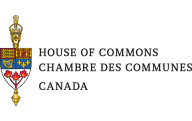 Parliamentarians on the Standing Committee on Industry and Technology (INDU) have mustered faux outrage in their undertaking of a study on “Accessibility and Affordability of Wireless and Broadband Services in Canada”.
Parliamentarians on the Standing Committee on Industry and Technology (INDU) have mustered faux outrage in their undertaking of a study on “Accessibility and Affordability of Wireless and Broadband Services in Canada”.
So far, the Committee has questioned witnesses from Quebecor / Videotron, the Competition Bureau, the CRTC, Bell, Rogers and TELUS. The Quebecor / Videotron panel was led by CEO PK Peladeau, but the Committee wanted the CEOs of the other major carriers to appear before them. Instead, the designated witnesses were a Chief Financial Officer, the President of the Wireless business unit, and the Executive Vice President of legal and regulatory affairs.
In other words, the carriers were represented by the kinds of experts equipped to answer questions related to the study. That was clearly the approach used by the Competition Bureau and the CRTC. Both agencies sent representatives responsible for areas expected to be the focus of the study. The CRTC Chair didn’t appear; the Commissioner of the Competition Bureau wasn’t there. No summons to appear were issued to the leaders of the agencies.
But the INDU members displayed faux outrage at the corporate CEOs who sent mere mortals to actually respond to questions, when the parliamentarians wanted their faces, if not their heads.
A couple years ago I wrote, “Giving elected officials the chance to ask questions of regulators is an important part of our democratic process. It can be very informative when used wisely. Unfortunately, the opportunity is wasted if Committee members are unprepared or do not have a solid understanding of the industries they are overseeing.”
The same can be said when MPs are armed with flawed or seriously outdated information. Rather than relying on official government data from ISED, the CRTC, or Statistics Canada, MPs were citing deeply flawed and widely discredited reports from Rewheel Research to mistakenly charge that Canadian mobile prices are the highest in the world. Recall, the International Center for Law and Economics referred to Rewheel as a “careless mish-mash of data points from which no reliable conclusions can be drawn.”
It simply isn’t true that Canadian prices are the highest in the world. Not by a long shot. Last November I wrote about a PwC study laying out a fact-based narrative on telecom affordability in Canada, painting a very different picture from the conventional wisdom.
MPs acknowledged that Canadian prices are coming down (as you have been reading here), but claimed prices are falling slower than in peer markets. That is also not true. In fact, prices have been going up in the US, the UK, and Australia (as well as many other countries).
MPs confused ARPU (a proxy for monthly bills), with prices – a mistake about which I write too frequently.
Witnesses have delivered information that is actually relevant to the study. That Canadian government fees for spectrum are the highest in the world, adding $5 per month in extra cost to mobile phone bills. That capital intensity by Canadian carriers is among the world’s highest, delivering high quality service across a challenging geography. That prices have fallen more than 15% in the past 12 months, roughly 50% in the past 5 years, despite price increases of close to 20% over the past 5 years in the overall Canadian economy. That the industry has created (and fully funded) targeted affordability programs to deliver home internet, mobile services, and devices to vulnerable communities.
The information that demonstrates the “Accessibility and Affordability of Wireless and Broadband Services in Canada” is available to members of INDU. Hopefully, we will see the MPs shed their faux outrage and open their minds to the answers being shared at the next meeting.
